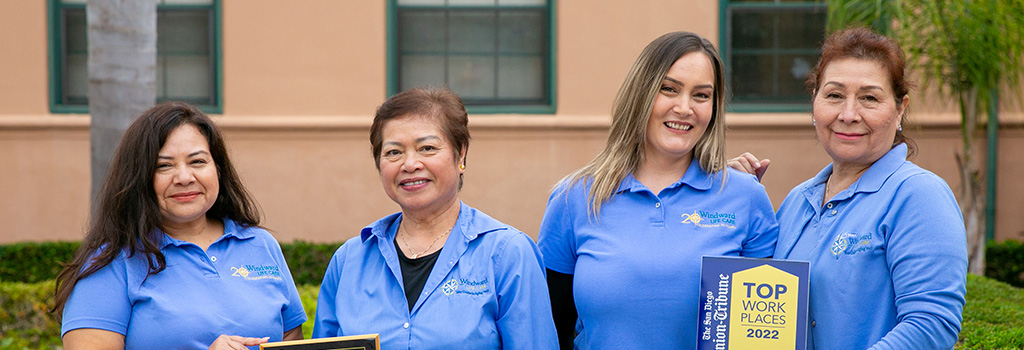How to Care For an Older Loved One From Afar
March 29, 2022 | Connectedness

Many of our clients live in San Diego and have adult children who live far away. These distant family members want to know what they can do from a distance to support their parents’ safety and independence. Here are a few of our top tips.
- Stay in touch with your parent’s friends and neighbors, especially if your parent lives alone or you have concerns about memory loss. Get the friends’ and neighbors’ phone numbers and email addresses. Ask them to update you if they have concerns.
- Play “detective” when visiting your parent. “Clues” that your parent needs more help include:
- Stacks of unopened mail (or unpaid bills)
- Evidence of falls (skin tears; blood stains on carpet or flooring)
- Calls coming in from solicitors who know your parent by name
- Doors left unlocked
- No food in the fridge
- Write down the account numbers for their utilities so you can help with bill paying if needed or set up electronic bill pay.
- Assess for financial abuse risk. Does your parent give money or their credit card to anyone? Who does their shopping? Who has access to their personal information? Any new “suitors”?
- Talk to your parent about online banking, so you can help monitor their accounts and ensure bills are paid on time. This will also help you detect fraud. Ensure that your parent has completed any documents specific to their financial institutions that would allow you to pay their bills or manage transactions in the event of their incapacity.
- Help your parent check their credit reports regularly to catch early signs of identity theft.
- Ensure your parent has a full estate plan if they have assets and they have the capacity to make legal decisions. This includes a power of attorney (POA) for healthcare, POA for property, and a will. Talk to your care manager, or consult www.NAELA.org for reputable estate planning and elder law attorneys.
- Consider technology options to increase safety and independence, including:
- Doorbell cameras or other outdoor cameras to monitor who visits
- Sensors inside to determine typical movement patterns and any variations that might indicate a fall or the person has wandered from the home
- A personal emergency response device for fall detection
- Know the typical signs of dementia and act quickly to get support in place if you see them. Don’t let rationalization or denial deter you from intervening. This will help avoid a crisis. Work with a care manager to set up an examination with a neurologist so you know if your parent’s cognitive changes are due to dementia or something else. This helps you form a treatment plan.
- Attend a physician appointment with your parent, in person or virtually, so their doctor gets to know you and you can hear the doctor’s recommendations. Ensure your name and contact info are correct as the emergency contact in your parent’s medical record. Ensure they have a copy of your parent’s advance directive. Ask if you can be added to the patient’s e-portal (or share a login with your parent), so you can read any “after visit” summaries that are posted. Review your parent’s medication list, including any changes and whether prescriptions are being refilled.
Windward’s Aging Life Care Managers® can help you through this process and be present when your parent needs in-person assistance. Please contact us for more information.

